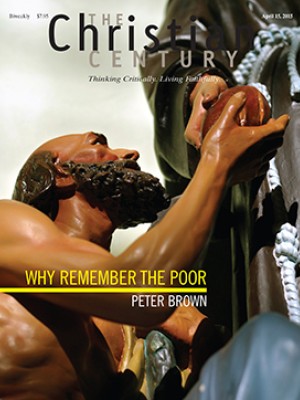Threat to affordable care

In March, the Supreme Court heard oral arguments in King v. Burwell, a suit devised by the Competitive Enterprise Institute to cripple a core provision of the Affordable Care Act: the federal subsidies for Americans buying coverage on the federal exchange.
The plaintiffs’ case is built on the fact that a phrase in the 2010 law can be interpreted as authorizing these subsidies only for people in the 14 states that have set up their own exchanges. They argue that Congress intended to make an incentive for states to create exchanges—and that the Obama administration is violating the law by instead making subsidies available in all states.
Read our latest issue or browse back issues.
The administration counters that the law’s provisions clearly apply to state and federal exchanges alike. Indeed, there is little evidence that the bill’s drafters intended otherwise. When Steven Brill was writing his book on the ACA (see review in this issue), none of the congressional members and staffers he interviewed mentioned that the subsidies might apply only to the state exchanges. Brill noted recently that Senator Charles Grassley—the Iowa Republican who worked on the law but ultimately voted against it—“seemed incredulous” at the very suggestion.
The court, of course, is less concerned with what the law’s drafters thought than with what they wrote. It’s a two-part test: Is the language ambiguous? If so, is the administration’s interpretation legitimate? The ACA’s language is rather unpolished, thanks to the convoluted process that produced it. And several justices have been unfriendly to it in the past.
Striking down the subsidies on the federal exchange would be devastating. More than 7 million people have bought insurance on the federal exchange, most with subsidies. They would lose the subsidies, and many would lose their coverage. This in turn could destabilize the wider insurance market. Much of the ACA’s success would be swiftly undone.
Law scholar William Baude offers a novel response in the event that the court sides with the plaintiffs: the administration could interpret the ruling to apply only to the four individuals CEI recruited to bring suit. It’s a politically explosive proposal, but it draws attention to a strange fact of this case: to sue, one has to be in a position to be harmed, and here the alleged harm is a subsidy—a tax credit—that helps people buy insurance. It’s hard to imagine people lining up to lodge complaints against their own tax credits.
Mother Jones tracked down CEI’s plaintiffs and found that they’re adamantly opposed to the ACA but a bit foggy on the details. One even said she doesn’t want to force others off their health care. This is, of course, exactly what King v. Burwell might do.
The ACA is no longer just an idea, a symbol of potential change. It is how millions of people now access care. Yet the court stands poised to gut it over an ambiguous phrase. The politics of Obamacare opposition continues to blind the plaintiffs and others to the concrete good the law is doing.






